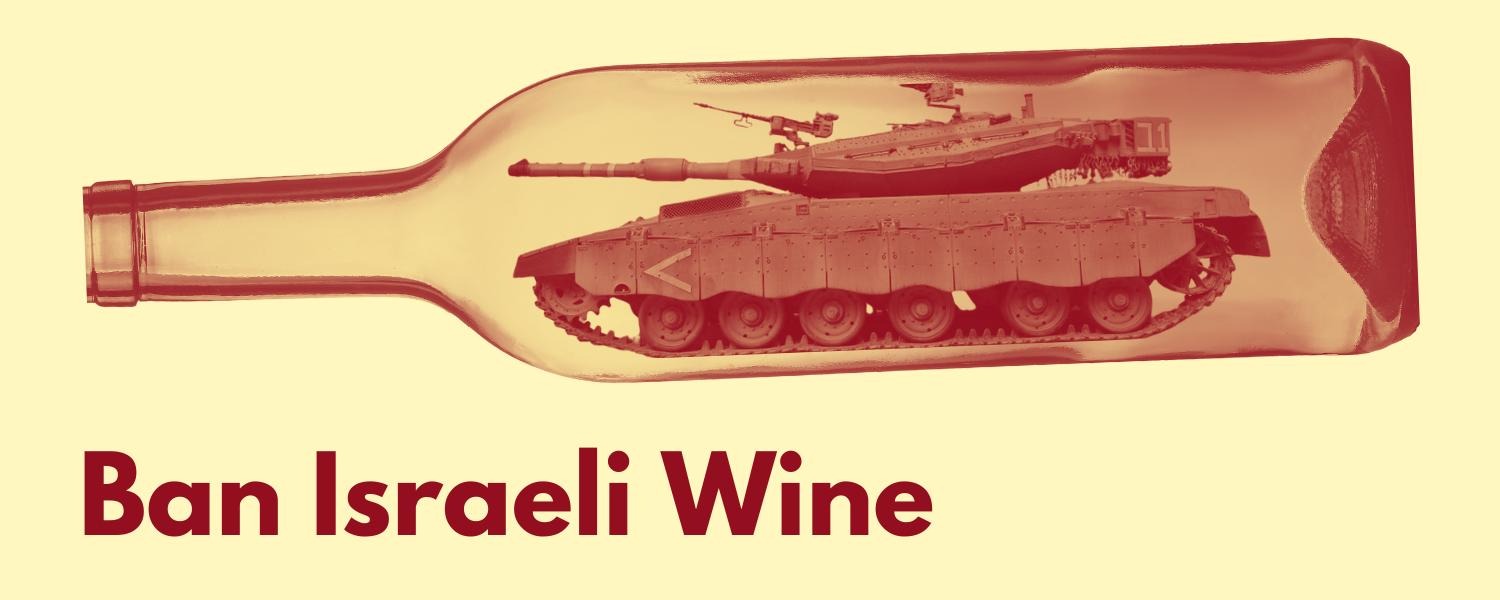Ban Israeli Wine

Don’t drink with Genocide. Ban Israeli wines in BC liquor stores.
After months of indiscriminate bombing in Gaza, a case of plausible genocide in the International Court of Justice, and arrest warrants issued to Israeli leaders for war crimes, it is long past time for United Nations member states to put economic pressure on the Israeli government.
In the latest provocation, Donald Trump essentially said the quiet part out loud: that Gaza can simply be “taken” and the Gazans removed to other countries. In other words, ethnic cleansing.
It’s time to call on the BC government to ban Israeli wine in order to pressure the Israeli government and defend the rights of Palestinians.
International Law – The global consensus among human rights experts and international legal bodies is that Israel’s actions violate multiple international laws and treaties. Canada, as a member of the United Nations, has committed to upholding international law. This means Canada is obliged to act. Just as Canada has removed Russian products from BC liquor stores, it must do the same for Israeli wines.
Occupation and Settlements – Many Israeli wineries are located in or source their grapes from illegal Israeli settlements in the occupied West Bank. These settlements are considered illegal under international law and are seen as a key obstacle to Palestinian sovereignty.
Land Appropriation – Vineyards used for Israeli wine production often involve land confiscation from Palestinian communities. Palestinian farmers have lost agricultural lands due to settlement expansion, making it difficult for them to sustain their own farming traditions and livelihoods.
Economic Boycott (BDS Movement) – The Boycott, Divestment, and Sanctions (BDS) movement, initiated by Palestinian civil society, calls for a boycott of Israeli products, including wine, as a means of nonviolent resistance to discriminatory Israeli policies. Supporting Israeli wine economically benefits a state that has been responsible for Palestinian displacement and oppression.
Water Inequality – Israeli vineyards, particularly in the West Bank, often have access to more water resources than Palestinian farmers, who face severe restrictions on water use due to Israeli policies. This exacerbates economic hardship and agricultural decline in Palestinian communities.
Cultural Heritage – Palestine has a rich agricultural history, including indigenous grape varieties and winemaking traditions that predate modern Israeli wine production. Encroachment of Israeli wineries is part of a broader pattern of cultural appropriation, where Palestinian heritage is marginalized or erased.
What can you do?
Sign our letter, calling on BC Premier David Eby to Ban Israeli wine.
Share this campaign information with friends and colleagues.
Ask your MLA to support this campaign.
Contact the campaign at: banisraeliwinebc@proton.me
